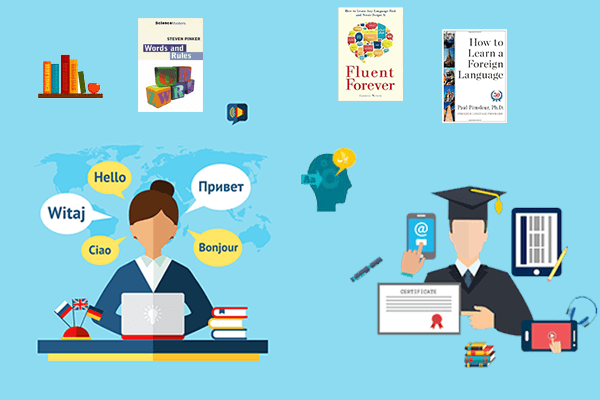How Can New Translators Train Themselves and Get Ready for Work?
The translation industry is huge, fierce and consistently evolving as the language keeps updating all the time. In such industry where the competition and technology keeps raising the bar higher and higher, translators today cannot survive only with language skills. The knowledge of the language is key to every translation, but the newer generation of translators today needs to be equipped with more than just knowledge.So here is how can the new translators train themselves and get themselves ready to work in modern age of translation.

Skilled in the language pair
Firstly in order to start as a translator, you need to have proficiency in at least two languages one being your native language. If you want to expand your language skills, there are plenty of online platforms which can help you. Sites like Udemy, Classcentral and Futurelearn can help you expand your horizons as translators. They also provide certification after the course which will make your resume more attractive and help you acquire more work. Beside online courses, you can also take help of various books such as “How to learn a Foreign Language “by Paul Pimsleur Ph.D., “Fluent Forever: How to Learn Any Language Fast and Never Forget it” by Gabriel Wyner, “Words and Rules: The ingredients of Language” by Steven Pinker and several others. These books will take you behind the scenes and provide you easier techniques to learn a new language.
Constant Learning
Additionally, you need to constantly update yourself in regards to the trends and concepts in terms of translation and the use of language. For this you need to read as much as foreign language as possible and grow your vocabulary. You can read newspapers, articles, journals, blogs anything you can get your hands on. One of the major difficulties in foreign language translation is the idioms and slang and their uses which cannot be all taught and have to be learned gradually regarding when and how they are used. In such cases the translation has to be absolutely spot on so that the meaning won’t change too much when translated to one and that one to the other language.
Familiarity with technical tools
Modern technology has been providing assistance in almost every field and the language industry is no exception. There are various Computer Assisted Translation Tools (CAT) that will help save your time and allow you to work faster. These tools help avoid common human errors such as word repetition, instances of skipped lines and help review the work done more quickly. Different tools such as Linguee, Fluency Now, SDL Trados, Memsource, OmegaT, MemoQ etc. are available in the market, you can choose whichever suits you the best.
Target Language Focus
The common view point that knowledge of the source makes you a good translator is completely wrong. While it is true that the knowledge of source matters but it doesn’t necessarily guarantees good translation. The most important part in the overall translation work is the writing in the target language because that is the final product required. Translating in your native language is easier as over the years you have naturally gained enough experience writing and practicing the language. Thus if the target language is not your native language then you should need a lot of experience over the years to perfect it as halfhearted efforts won’t cut it. For gaining experience in languages beyond your native tongue, you can join a professional association, volunteer (Translators Beyond Borders, TED Talks, and similar programs) and gain valuable experience which will ultimately help in excelling in the target language.
Specialized translation
With globalization, translators today have the opportunity to excel in one technical background rather than train as a translator in general. Specialization in on particular field or area is probably the most lucrative business for newer translators who are entering in the field. It is not just the demand but also the lack of quality to maintain standards of translation all around the globe. Areas such as legal translation, medical translation, tourism translation, IT translation have great scope. Specialization in one particular area would help deliver the highest quality of translation in the target language which sets you apart from other translators who are working in all domains.